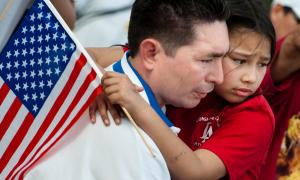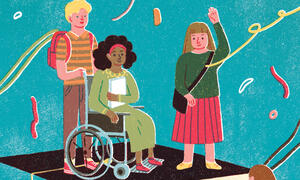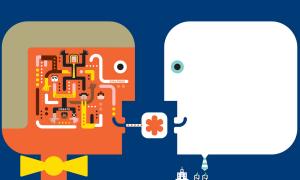article
2,461 Results
text
Informational
What to the Slave Is the Fourth of July?
“What to the Slave is the Fourth of July?” was a speech given by abolitionist and former slave Frederick Douglass on July 5, 1852, in Rochester, N.Y., at an event commemorating American independence.
July 3, 2014
text
Informational
Slaves’ Petition for Freedom to the Massachusetts Legislature (1777)
This petition illustrates how enslaved people used the rhetoric of the American Revolution to point out the colonies’ hypocrisy of demanding freedom and liberty, while themselves having slavery.
January 5, 2018
text
Informational
Petition of 1788 for the Abolition of Slavery in Connecticut, by Enslaved People of New Haven
This petition illustrates how enslaved people used the rhetoric of the American Revolution to point out the colonies’ hypocrisy of demanding freedom and liberty, while themselves having slavery.
January 5, 2018
text
Informational
A. J. McElveen, letter to the slaver Ziba B. Oakes, 19 January 1854
A. J. McElveen writes to the Charleston, South Carolina, enslaver Z. B. Oakes, about an enslaved man named Isaac. McElveen describes Isaac as a genius, painter, cook, carriage driver, violinist, etc.
February 20, 2018
text
Informational
Letter to Isaac M. Schermerhorn
In this letter, Lincoln offers his argument in favor of finishing the war rather than reaching a peace agreement with the Confederate government.
January 9, 2018
article
Waiting for Tiana: Prioritizing Cultural Diversity in Literature

Recalling a chance encounter with a Princess Tiana shampoo bottle led this educator to reflect on the importance of diverse children’s books.
text
Informational
Reminiscences
In reflecting on both a pivotal moment in her life during the Civil War and the longer-term effects of such an event, Mrs. Albright excludes her family from the violent system of slavery while adhering to stereotypically Southern values. The necessity of interracial intimacy is noticeable in Mrs. Albright’s descriptions.
December 15, 2017
article
The World for Immigrant Children in Two Letters

We’ll always support educators who stand up for their students. Teaching Tolerance Director Maureen Costello explains why.
article
Disability Is Diversity

Embracing diversity means accepting disability as a part of the total human experience and being intentional about practices that remove barriers to learning so all children can thrive.
